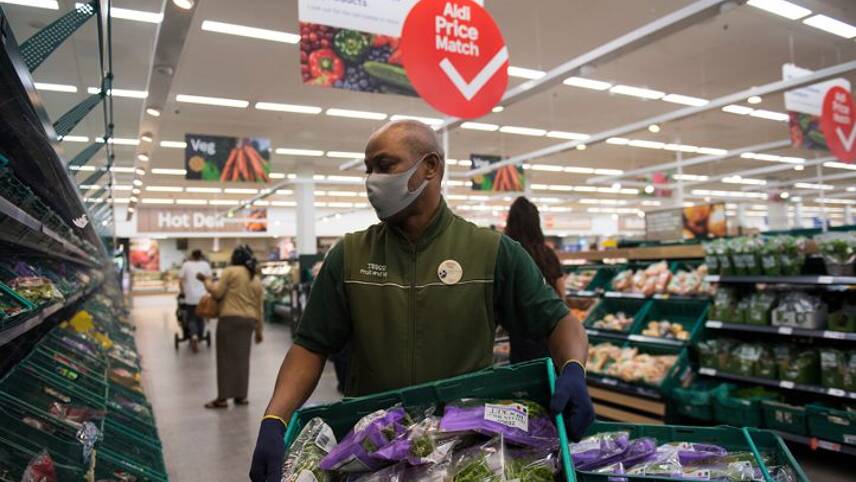Register for free and continue reading
Join our growing army of changemakers and get unlimited access to our premium content

Called ‘Innovation Connections’, the scheme will pair startups with suppliers that are well-positioned to trial their innovations. Each successful pairing of supplier and start-up will receive up to £150,000 in funding from Tesco to help pilot and scale new technologies.
Eight start-ups are on the shortlist of entries for this round of ‘Innovation Connections’ funding, created following Tesco’s receipt of more than 70 applications. One winner will be announced later this week. The shortlist of start-ups is as follows:
- AgriSound– Producers of technology that helps fruit and vegetable farmers to monitor pollinator and pest levels using in-field sensors. This data can be used to implement targeted interventions.
- Aurea – Smart farming specifialists using deep learning, drones and sensors to deliver full lifecycle crop intelligence for fruit trees, helping farmers to minimise resource use while maximising yields.
- Chirrup.ai – Producers of a monitoring system that uses birdsong as a biodiversity indicator in grassland animal agriculture.
- CCm and Andermatt – A partnership producing low-emission fertilizers suitable for potato production. CCm uses captures CO2 rom industrial activity to stabilise key materials like ammonia.
- FCT – Producers of a carbon footprint software for horticultural growers, covering both emissions and sequestration.
- Future by Insects – Manufacturers of a fish feed produced using microalgae grown using food waste. This approach purports to cut emissions and resuource use.
- Harbro– Producers of digital technology to precisely measure nutrient efficiency on dairy farms.
- InsPro – Innovator behind portable bioconversion units that use insects to convert food waste into chicken feed. This could reduce the need for soy, a deforestation-linked commodity, in chicken feed.
The overarching goal of Tesco and WWF’s partnership is to halve the environmental impact of the average UK shopping basket by 2030, compared with a 2019 baseline. Four other supermarkets signed on to that commitment at COP26 last November. Impact is measured on a life-cycle basis and the methodology includes information relating to emissions, deforestation, food waste and packaging waste. The wider role that supply chains have to play in promoting sustainable food systems and more sustainable diets are also considered.
Tesco Group’s chief executive Ken Murphy said: “To deliver affordable, healthy and sustainable food for all, the entire food sector must innovate fast. That’s why, as well as driving improvements in our own operations, Tesco is collaborating with innovative suppliers and start-ups.”
Tesco and WWF are also using the launch of ‘Innovation Connections’ to implore the Government to ensure that there are no further delays to the National Food Strategy, which was initially expected in early spring 2022 but is expected this month. Henry Dimbleby published his White Paper of recommendations for the Strategy last July.
Specifically, Tesco wants more clarity on how the Government will change regulations to help accelerate the scaling up of more mature sustainable innovations for the UK’s food system, including low-carbon fertilisers and insect-based animal feed.
A recent report from GovGrant revealed that the UK attracts 18% of Europe’s total investment in sustainability technologies. That report revealed that energy production and energy equipment companies are taking the lion’s share of funding in the UK and across the continent. There are clearly opportunities remaining for scaling investment in sectors such as transport and agriculture.


Please login or Register to leave a comment.